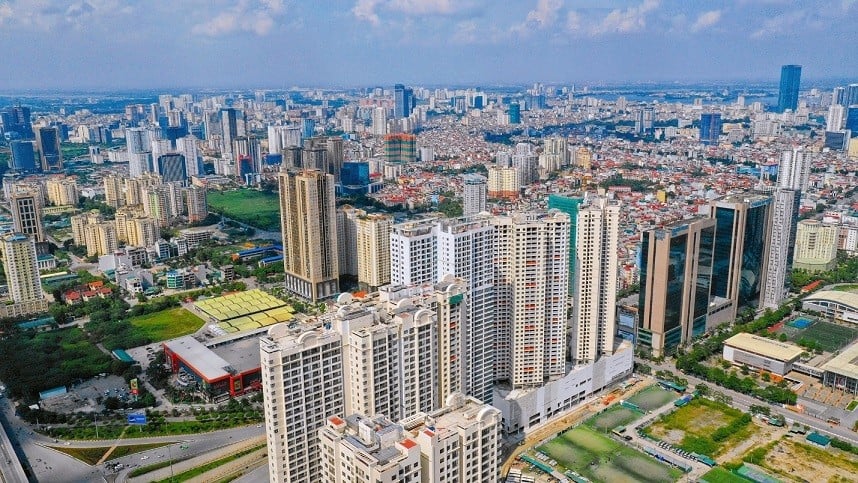 |
| National Assembly delegates proposed considering adding a tighter control mechanism for transactions taking place at real estate trading floors. (Photo: Hoang Ha) |
Two-price houses are still popular
Commenting on the draft revised Law on Real Estate Business at the National Assembly Hall on August 29, Mr. Le Thanh Hoan (National Assembly Delegation of Thanh Hoa Province) suggested considering adding a mechanism to more strictly control real estate transactions taking place at real estate trading floors. Because, according to him, the situation of goods being sold at two prices is quite common.
"From motorbikes, cars to houses, it is not difficult for us to search online with the selling price of the investor posted publicly. But to buy at the listed price is very difficult," Mr. Hoan said.
Mr. Hoan asked, where is the real transaction value of real estate advertised by businesses? Those are the prices posted all over the internet but are "magically transformed" into foreign rates, transfer rates, investor prices but with an additional amount not stated in the sales contract, essentially tax evasion.
Regarding real estate brokerage, Mr. Hoan said that the draft Law has continued to perfect the important legal framework to move towards transparency and convenience of the real estate market. Besides serious teams, it is not difficult to see that brokerage activities take place in many rich and diverse forms without control.
"The phenomenon of so-called land brokers is widespread, affecting the legitimate activities of real estate brokers. Besides, there are still situations of opportunistic activities, profiteering, and price fixing by some brokerage groups, causing damage to customers," Mr. Hoan stated.
Therefore, this National Assembly delegate also requested that the agency drafting this Law study and supplement regulations on the responsibilities of real estate brokerage organizations and individuals in the direction of clearly defining prohibited cases.
Specifically the cases:
Having a direct interest in real estate, excluding discounted commissions without disclosing that interest to real estate buyers; inciting a party to breach a deposit contract or sales contract to enter into a new contract with another person.
Arbitrarily increasing or setting real estate prices to gain benefits against the will of the parties involved in the transaction; participating in brokerage for parties to sign contracts but not fully and honestly informing the parties involved in the transaction of information related to the real estate.
"Some of the prohibited acts mentioned above serve as a basis for considering the responsibility of real estate brokerage organizations and individuals. Depending on the nature and violation, administrative handling, including criminal prosecution, may be considered," Mr. Hoan emphasized.
New supply in the West and East of Hanoi will account for 40% of the apartment market share.
Experts estimate that in the coming time, new supply in the West and East will account for 40% of the apartment market share. In addition, real estate products in these areas in particular and Hanoi in general will be increasingly improved.
According to Savills, 2008 marked a new development step for Hanoi, when the capital became one of the 17 largest cities in the world after merging with a total area of more than 3,300km2, 3.6 times larger than before.
In 2011, the Government approved the master plan for the construction of the capital until 2030, with a vision to 2050, setting the goal of turning Hanoi into a sustainable city with a synchronous infrastructure and technical system, high competitiveness and harmonious cultural development.
At the same time, the West of Hanoi has had earlier movements, so the existing urban picture is clear, forming a wave of migration to this area for settlement. The development of the routes To Huu - Le Van Luong, Ring Road 2, Ring Road 3 and the planned Ring Road 3.5 and Ring Road 4 have created momentum for the development of real estate projects. Large-scale projects developed along these routes in the West such as The Manor Central Park, Vinhomes Green Bay, Vinhomes Thang Long, Mailand Ha Noi City.
Senior Director of Research & Consulting, Savills Hanoi Do Thu Hang said that since 2011, the Western area in Bac Tu Liem, Nam Tu Liem and Cau Giay districts has always led the market in terms of supply market share with about 30%. Accordingly, this area has the largest office supply in the capital, with 50% market share. In the near future, this area will continue to be the development center of Hanoi.
In the East of the city, according to the Capital Transport Planning to 2030, with a vision to 2050, Hanoi will build 10 more large bridges across the Red River with a number of projects such as: Vinh Tuy 2 Bridge, Tran Hung Dao Bridge, Tu Lien Bridge, New Thang Long, Thuong Cat Bridge, Hong Ha 9.
On the other hand, the completion of infrastructure projects such as the extension of Ring Road 2 and the planning of Ring Road 4 will shorten travel time from Hanoi to other localities, increasing the attractiveness in the East for the needs from neighboring localities.
At the same time, the planning of the historical inner city was launched in 2021 with the goal of determining the need to reduce the population by about 215,000 in the period 2020-2030. Overall, the 6 planning projects of the historical inner city have a research scale of over 2,700 hectares with the main requirement of population control, reducing from 1.2 million people (in 2009) to an expected 672,000 people, contributing to improving the social infrastructure system and technical infrastructure.
According to Ms. Hang, housing projects will benefit from the migration from the historic inner city area. In particular, some former residents of the old quarter have moved to neighboring and prominent districts in the East to live, due to good infrastructure conditions and convenient transportation.
Senior Director of Research & Consulting, Savills Hanoi Do Thu Hang assessed that in the coming time, new supply in the West and East areas will account for 40% of the market share for apartments.
In particular, the Eastern region including Long Bien and Gia Lam districts with large land funds and infrastructure is being strongly developed with the participation of major investors such as Vingroup and Ecopark, which have been attracting buyers from the center of Hanoi. According to Savills, the proportion of apartment supply in the East in relation to the total supply of the whole market has increased from a very low level in 2011 to 12% in the first half of 2023.
In addition, this area also has the strongest growth in low-rise supply in recent years, increasing from 8% of Hanoi's supply market share in 2014 to 15% in the first half of 2023.
Meanwhile, the primary price of housing products also differs between the two regions. According to Savills, in the West, the average primary price of apartments in the first half of 2023 reached VND 58 million/m2.
The average price of primary apartments in the East is about 48 million VND/m2. For low-rise products, the primary price in the first 6 months of 2023 in the West is 157-225 million VND/m2 of land and in the East is 158-168 million VND/m2 of land.
According to Ms. Do Thu Hang, the price difference between the two regions is because the Eastern region was formed and developed later but quite quickly, so there is still such a price gap with the Western region.
Tuyen Quang: Looking for investors for a resort urban project with capital of over 17,000 billion VND
The Department of Planning and Investment of Tuyen Quang province has just announced the search for investors for the My Lam - Tuyen Quang resort urban area project with a total investment capital of more than 17,000 billion VND. The My Lam - Tuyen Quang resort urban area project is expected to create a breakthrough in the socio-economic development of the locality and neighboring areas.
This project covers an area of 540 hectares and is located in My Lam Ward (Tuyen Quang City) and My Bang Commune (Yen Son District). The total investment of the project is about 17,100 billion VND. The cost of compensation and resettlement support is over 1,200 billion VND.
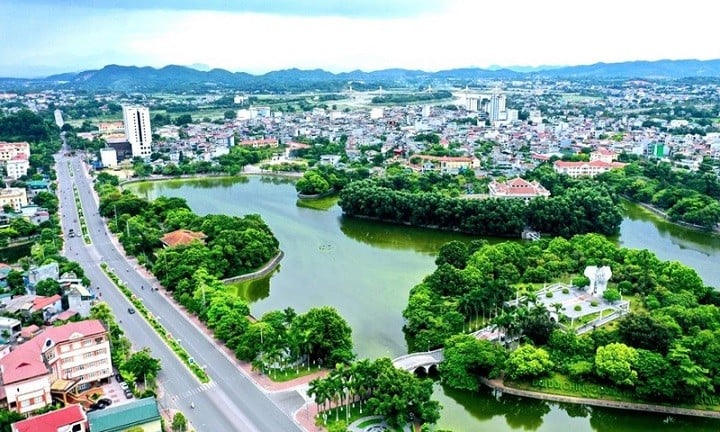 |
| A corner of Tuyen Quang city, Tuyen Quang province. (Source: BXD) |
The project implementation schedule is 4 years from the date of investment policy approval. The project duration is 50 years. Investors can submit bids from now until September 29.
This is a project to build an ecological urban area combining resort and exemplary, diverse services. Exploiting natural green landscape elements. Previously, on July 10, Deputy Prime Minister Tran Hong Ha signed Decision No. 820/QD-TTg approving the investment policy of the My Lam - Tuyen Quang Resort Urban Area Project in the form of bidding to select investors.
Up to now, this is the largest resort urban area project in Tuyen Quang province. The project is expected to create a breakthrough in socio-economic development, driving the development of Tuyen Quang city and neighboring areas that have been and are being implemented in the area.
Risks when buying and selling apartments without pink books
According to regulations, apartments without a pink book can still be bought and sold, except for exceptional cases. In other cases, a pink book is required. Therefore, buyers need to research and carefully consider whether to buy an apartment without a pink book or not to avoid risks when they have "put down money".
Pursuant to Point a, Clause 1, Article 11 of the 2014 Housing Law, individuals and organizations are allowed to buy and sell when they have a certificate (commonly known as a red book or pink book) except in the following cases: Buying and selling future housing; Transferring a contract to buy and sell commercial housing in a housing construction investment project, even if the house has been handed over but the application for a pink book has not yet been submitted; Buying and selling social housing.
For each of the above exceptions, the law requires the following conditions to be met. Specifically as follows: Conditions for buying and selling future housing (based on Clause 1, Article 72, Decree 99/2015/ND-CP). No requirement for a condominium pink book. There must be a document from the investor sent to the Department of Construction to replace it. This document must meet the following conditions: Content about the condominium being eligible for sale; accompanied by project documents, design drawings, construction permits, acceptance documents... or documents about the mortgage release (if previously mortgaged) with a commitment to take responsibility from the investor.
Conditions for transferring a commercial housing sale and purchase contract in a housing construction investment project: Made in writing, with or without notarization at the request of the parties. Number of contracts: 06 copies, 03 copies kept at the investor, 01 copy at the tax authority, 01 copy at the transferor, 01 copy at the transferee and 01 copy at the notary organization.
Conditions for buying and selling social housing (based on Clause 2, Article 63 of the Housing Law): Must have the following documents: Construction investment project documents, technical design, construction permit; documents proving completion of foundation construction, water supply and drainage system, electricity, etc.
According to the above regulations, apartments without a pink book can still be bought and sold, except for exceptional cases. In other cases, a pink book is required. Therefore, if there is no pink book and the above conditions are not met, the apartment cannot be bought and sold.
The most serious risk is when the parties do not have permission to buy and sell apartments but still break the law and make a sales contract with each other, then that contract will be considered invalid. When the contract is declared invalid, the buyer may "lose" the money spent to buy the apartment.
In addition, if the sale has not been made, the parties "circumvent" the law by making a deposit or authorization contract but in fact it is a sale, then similarly, these types of contracts may be invalid.
Therefore, to consider whether to buy an apartment without a pink book, the buyer must first consider the reason why this situation exists. After finding out the reason, if the apartment belongs to the category of those that do not have a pink book and is bought and sold, it is completely possible to buy and sell normally.
On the contrary, if for other reasons and potential risks, buyers should consider and decide not to buy that apartment.
Source




![[Photo] Buddha's Birthday 2025: Honoring the message of love, wisdom, and tolerance](https://vphoto.vietnam.vn/thumb/1200x675/vietnam/resource/IMAGE/2025/5/12/8cd2a70beb264374b41fc5d36add6c3d)




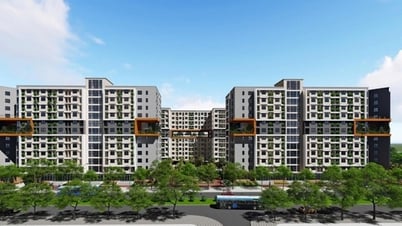
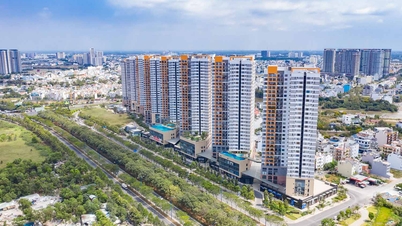




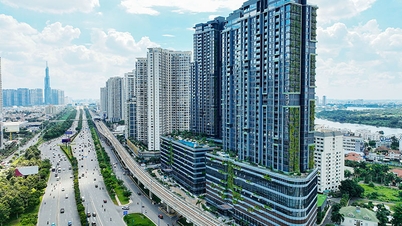
















![[Photo] General Secretary To Lam meets and expresses gratitude to Vietnam's Belarusian friends](https://vphoto.vietnam.vn/thumb/1200x675/vietnam/resource/IMAGE/2025/5/11/c515ee2054c54a87aa8a7cb520f2fa6e)
![[Photo] General Secretary To Lam arrives in Minsk, begins state visit to Belarus](https://vphoto.vietnam.vn/thumb/1200x675/vietnam/resource/IMAGE/2025/5/11/76602f587468437f8b5b7104495f444d)
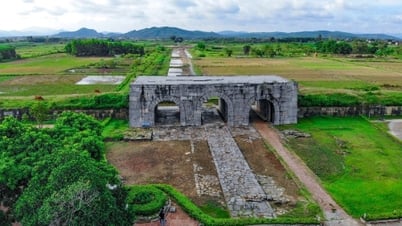

























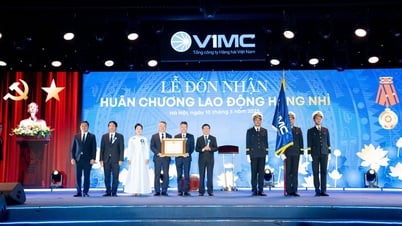
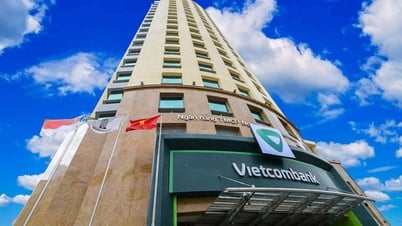





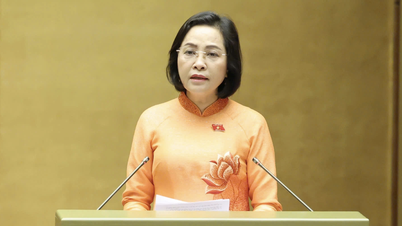

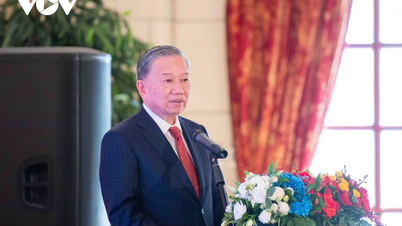


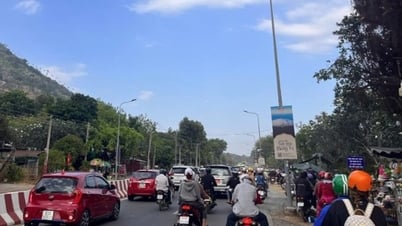

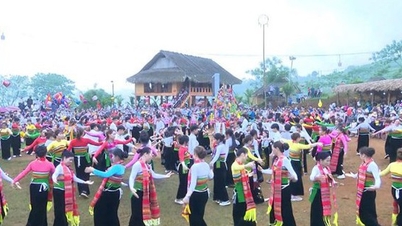


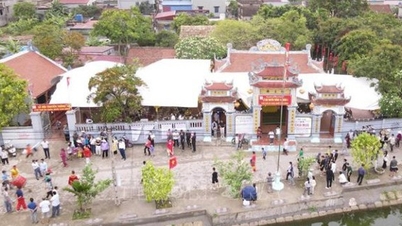

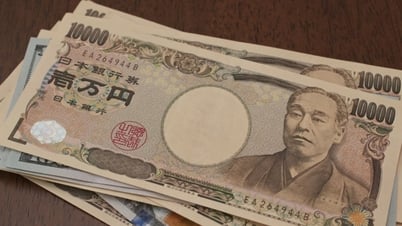

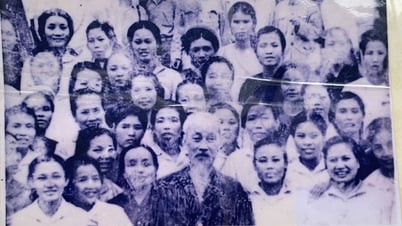

















Comment (0)